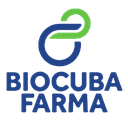Executive Secretary

VIII International Symposium on Chemistry and Pharmaceutical Sciences
SIIQ
XIII Conference "Chemical Engineering: Development, potentials and challenges"
Abstract
For the sugar industry, alternatives have been proposed to use its byproducts to obtain new products, in the context of a biorefinery. The process to produce torula yeast, a porcine animal food obtained from the filtered juice and final honey, which results in an increase in the availability of leftover bagasse. From this bagasse, subjected to an acid pretreatment, xylitol can be obtained, a sugar substitute for the manufacture of foods and medicines, leaving a resulting lignocellulosic material that can be compacted in the form of pellets and used for the generation of electricity as a biofuel with a higher caloric power. The objective of this research is to integrate the technologies for obtaining torula yeast, xylitol and pellets with the sugar industry, by adjusting costs according to the capacities required by applying rule 0.6 and calculating financial indicators. Without ruling out the losses of sugar and honey that the extraction of juices in the filters entails, with the new products the Agroindustrial Sugar Company acquires greater added value, considering the sales, from which profits are obtained, in addition to sources of employment, a feed for pig farming, and a biofuel with a caloric value. Under these conditions there are positive profitability indicators.
Resumen
Para la industria azucarera, se han propuesto alternativas de utilizar sus subproductos en la obtención de nuevos productos, sobre el contexto de una biorrefinería. El proceso para elaborar la levadura torula, alimento animal porcino obtenido a partir del jugo filtrado y las mieles finales, que da como resultado el aumento en la disponibilidad del bagazo sobrante. De este bagazo, sometido a un pretratramiento ácido puede obtenerse el xilitol, sustituto del azúcar para la fabricación de alimentos y medicamentos, quedando un material lignocelulósico resultante que puede compactarse en forma de pellets y ser empleado para la generación de electricidad como biocombustible con un mayor poder calórico. En esta investigación se tiene como objetivo integrar las tecnologías para la obtención de levadura torula, xilitol y pellets con la industria azucarera, mediante el ajuste de los costos según las capacidades que se requieren aplicando la regla 0,6 y calculando los indicadores financieros. Sin descartar las pérdidas de azúcar y miel que la extracción de jugos en los filtros supone, con los nuevos productos la Empresa Agroindustrial Azucarera adquiere mayor valor agregado, considerando las ventas, de las que se obtienen ganancias además de fuentes de empleo, un alimento para la cría porcina, y un biocombustible con poder calórico. Bajo esas condiciones se tienen indicadores de rentabilidad positivos.
About The Speaker

Norlem Liaño Abascal

Discussion




